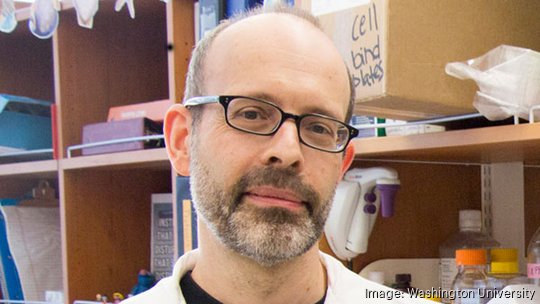
A consortium headed by Washington University that was set up to study treatment and response options to five families of understudied viruses has received two federal grants worth a combined $90.1 million.
The goal of the research is to figure out foundations for producing vaccines and therapies should a virus within one of the families cause an outbreak.
The National Institute of Allergy and Infectious Diseases, part of the National Institutes of Health (NIH), is giving $15.6 million per year for three years to study the alphavirus and flavivirus viral families, which include mosquito- and tick-borne viruses like Zika, West Nile and chikungunya. The other grant, worth $14.7 million for three years, is for research around the families that include the respiratory mumps virus and insect-borne Oropouche and Rift Valley fever viruses.
Dr. Michael Diamond, an infectious disease specialist at the WashU School of Medicine, said researchers far beyond St. Louis will be working together through the grants.
"There's a team that is centered here in WashU, but there are other investigators nationally and even internationally who are participating in this," he said.
He thinks WashU was competitive for the grants because of the university's push to focus on areas of emerging pathogens — as evidenced by the Department of Molecular Microbiology's 2019 recruitment of negative-strand RNA viruses expert Sean Whelan, who is leading the latter study — and because of the Covid-19 pandemic.
"Different departments (are) really specializing in areas that would support this in medicine, in immunology, microbiology, pediatrics and other places," Diamond said. "We've put together a group of investigators who work really well together to address problems associated with emerging pathogens."
Eighteen institutions are participating in Diamond's grant studying alphaviruses and flaviviruses, akin to the number participating in the research Whelan is heading.
Diamond said the money won't directly promote faculty recruitment, which is done by departments and the school dean, but he said institutions participating in the research will expand their resources to accommodate it. He noted that WashU just invested in its containment and research facilities, calling it "reflective of the institutional commitments to studying emerging pathogens" and something that will cause more people to work on them.
"We have to hire staff, we have to hire trainees, fellows and otherwise, who are actually going to be doing work. That's directly related to the grants," he said.
There is concern about viruses in the families spreading as global warming expands the range of the arthropods that carry the viruses, international travel increases, and insect-abatement measures ebb, given the toxicity associated with pesticides.
"These viruses are not statically evolved as well," Diamond said, "so periodically we see epidemics of these viruses." The 2016 Zika virus epidemic "came out of nowhere and started to cause congenital disease in parts of South America," he said.
So the goal is to do research on vaccines and antibody-based therapeutics to protect against infections. But Diamond said the goal is not necessarily to develop drugs or vaccines.
"The goal is to develop platforms so that we can respond," he said. "If we make products, that's great, and I think that the NIH would like to see us do that, meaning we have target prototype viruses within each family that we're going to use to test out strategies, to develop platforms that then can be used in a modular, plug-and-play format so you can rapidly respond to an emerging (virus) in that family."
Diamond said, "How are we going to be prepared for a new pandemic of something that we don't know that might be related to something that we do know? That's the first thing."
Secondly, if researchers have success with the prototype viruses they're studying, they may be able to make products and accelerate development. But the grant funding does not include human trials: It instead funds all the pre-clinical and optimization studies, hopefully yielding a platform on which researchers could rapidly and efficiently target new emerging epidemics.
Different labs are trying different things, creating multiple research platforms for viruses in the same family to see which one works the best; research could then be applied to other viruses of the same family. Antibody therapies that would specifically fight particular viruses could be used to similarly fight similar viruses.
Diamond said there is hope for two more years of study funding beyond the three each has been funded, dependent upon government allocations and research progress.











